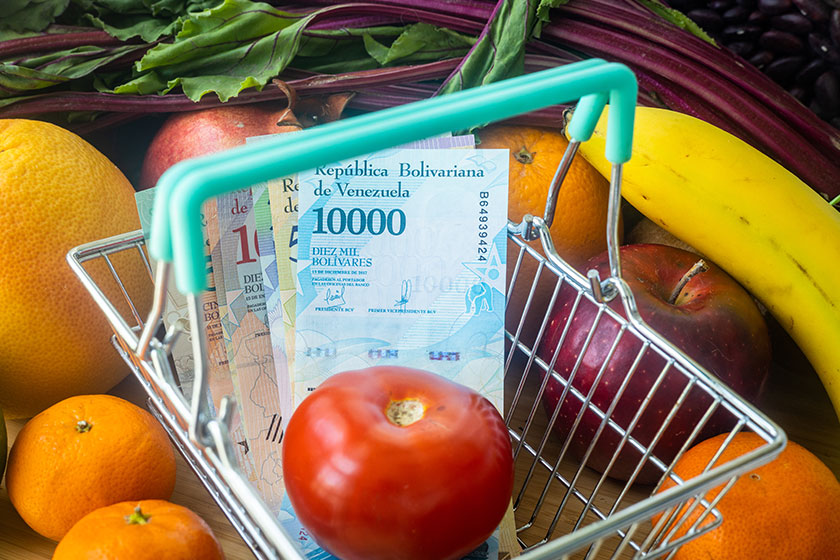Opting for a retirement community is an important decision, especially for those considering the vibrant senior living in Columbus, GA. One significant aspect of this choice is the practicality of controlling costs, particularly food costs. Here are some effective tips to keep your food budget under control without compromising on the quality of your meals.
Smart Meal Planning
The first step to control your food costs is to plan your meals smartly. Instead of dining out frequently or ordering in, try to prepare your meals more often. Cooking at home not only helps in saving money but also ensures that you know what is going into your food. While planning your meals, keep nutrition in mind as well as diversity to keep things interesting.
Bulk Purchasing Wisely
Buying in bulk can be cost-effective, but only if done wisely. Make sure to buy items that have a longer shelf-life in larger quantities. Dry goods like rice, pasta, and beans are great examples. Be careful with perishable goods and do not overbuy to avoid wastage.
Seasonal Shopping
Buying fresh fruits and vegetables in their peak season can not only ensure better taste and nutritional value but can also help you save money. These items are usually more abundant and therefore cheaper during their respective seasons.
Utilize Local Farmer’s Markets
Local farmer’s markets are a great place to find fresh, high-quality produce often at lower prices than supermarkets. Plus, you are supporting local businesses and reducing your carbon footprint.
Regular Portion Control
Portion control is not just good for maintaining a healthy weight, it can also help you control food costs. By sticking to recommended serving sizes, you can ensure that your grocery supplies last for the intended period.
Minimize Food Wastage
Minimizing food wastage is a crucial step in controlling food costs. This can be achieved by proper meal planning, storing food correctly, and using leftovers creatively.
Grow Your Own Produce
If your retirement community has a communal garden space, consider growing your own herbs, fruits, or vegetables. This can significantly reduce your grocery bill and provide you with fresh, organic produce.
Coupon Clipping and Sales
Keeping an eye out for coupons and sales is an age-old way of saving on food costs. You can find discounts in newspapers, online, and directly in the store. Make a habit of checking the sale flyers of your favorite grocery stores, or consider using a grocery app to track discounts and deals.
Master the Art of Freezing
Learning to freeze your food properly can be a game changer. Not all foods freeze well, so it is important to know which ones do. Bread, casseroles, soups, and stews can be frozen and consumed later. This way, you can prepare food in bulk and save it for days when you do not feel like cooking.
Learn to Repurpose Leftovers
Do not toss away your leftovers. Many can be repurposed into completely different dishes, saving you both time and money. Leftover vegetables can be tossed into a salad or soup. Leftover chicken or meat can be used in sandwiches or mixed into pasta.
Consider Meat Alternatives
Meat can be expensive, so consider occasionally replacing it with other sources of protein like beans, lentils, or tofu. These alternatives are often cheaper and can be just as filling and nutritious.
Growing Your Own Produce
Growing your own fruits and vegetables can be an enjoyable hobby that also saves on your grocery bills. Many retirement communities encourage this activity and provide spaces for residents to grow their own produce. Not only does this provide fresh, organic options, but gardening can also be therapeutic and a great way to socialize with other members of the community.
Purchase Generic Brands
Opting for generic brands can also lead to significant savings. These items are often just as good as their brand-name counterparts, but at a fraction of the cost. From spices to canned goods, buying generic can make a big difference in your monthly food expenditure.
Portion Control
Learning to control portion sizes is not just beneficial for your health, it is also great for your wallet. By serving smaller portions, you can extend the life of your meals and decrease food waste. This also promotes healthier eating habits and can help manage your weight.
Take Advantage of Senior Discounts
Finally, do not forget to use any senior discounts that are available to you. Many grocery stores and restaurants offer discounts for older adults. Every penny counts, and these discounts can add up to significant savings over time.
Control Food Costs in Retirement
Choosing to retire in a retirement community such as those found in Columbus, GA is a significant life decision. By incorporating these effective cost-cutting strategies, you can ensure a smooth transition and a healthy, delicious, and budget-friendly culinary experience in your new living environment. Control your food costs without sacrificing taste or nutritional value, and enjoy a stress-free retirement.







